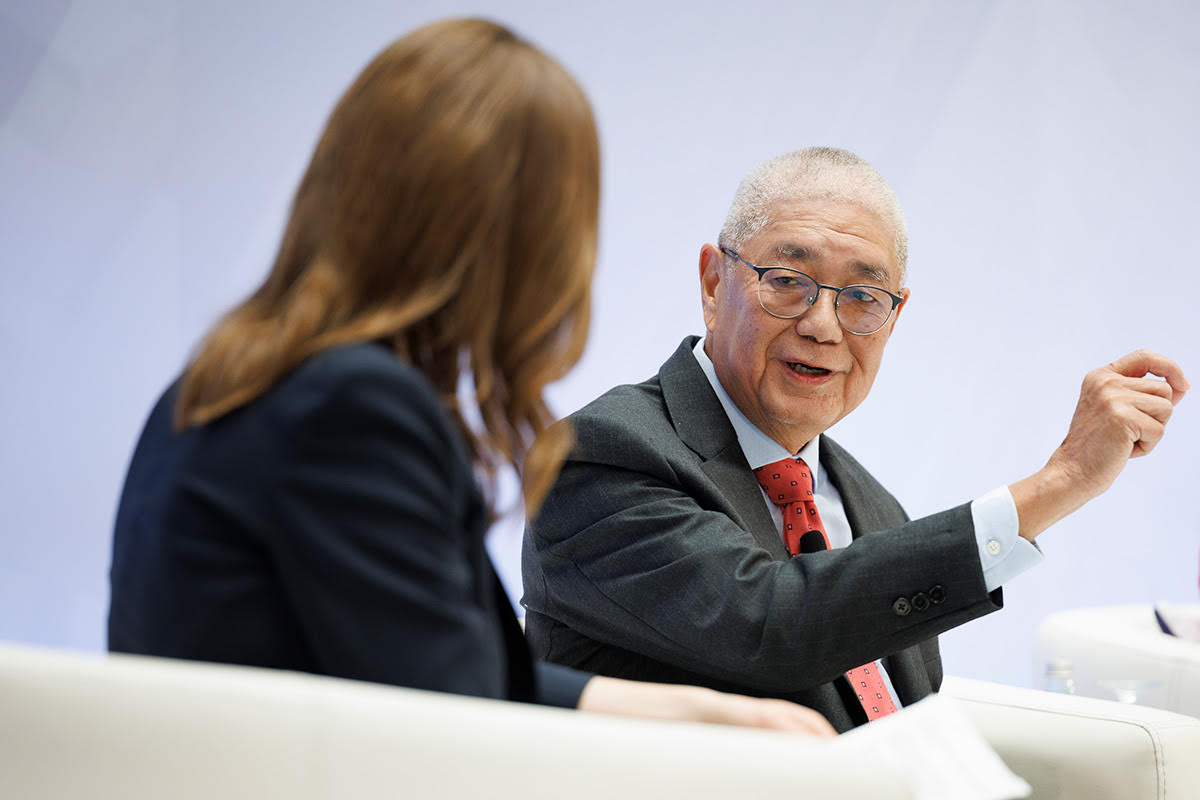In a stark warning delivered amidst the global economic gathering at the International Monetary Fund-World Bank Group (IMF-WBG) Spring Meetings, Bangko Sentral ng Pilipinas (BSP) Governor Eli M. Remolona, Jr. sounded the alarm on the unique and persistent threat posed by trade shocks to emerging economies.
Unlike the fleeting disruptions of typical supply-side issues, trade upheavals, he argued, cast a longer shadow, potentially reshaping investment landscapes and hindering growth trajectories for years to come.

Photo shows BSP Governor Eli M. Remolona, Jr. during the SM25 Seminar: “The Evolving Art of Monetary Policy in Emerging Markets.” Photo credit: © IMF Photo/Tom Brenner.
Speaking at the IMF’s flagship seminar, “The Evolving Art of Monetary Policy in Emerging Markets,” Governor Remolona painted a concerning picture. “Supply shocks come and go, [but] this kind of shock that we are seeing now tends to stick around.” His remarks, delivered on April 25, 2025, underscored the growing anxiety among policymakers grappling with the complex interplay of geopolitical tensions and economic vulnerabilities.
The governor’s concerns centered on the insidious nature of trade shocks, as investment goods tend to be highly dependent on imports. This, he argued directly impacts long-term investment. “Trade shocks tend to affect investment in the longer term, partly because investment goods tend to be highly dependent on imports,” he explained, highlighting the vulnerability of developing nations to disruptions in global trade flows.
This dependency, it turns out, could lead to a significant shrinkage in capital stock, ultimately dragging down potential growth.
“Unfortunately, monetary policy doesn’t have the tools for that kind of shock,” Remolona admitted, acknowledging the limitations faced by central banks in addressing these structural challenges. However, he offered a sliver of optimism, noting that slowing inflation gives the BSP “more degrees of freedom to reduce policy rates.” This flexibility, he suggested, could offer some buffer against the economic headwinds.’
BSP’s global engagement: Navigating stability, growth at IMF-WBG Spring Meetings

Photo during SM25 Seminar: The Evolving Art of Monetary Policy in Emerging Markets
Photo credit: © IMF Photo/Tom Brenner
Governor Remolona led a high-powered Philippine delegation to the Spring Meetings, including Monetary Board Member Rosalia V. De Leon, Assistant Governor Zeno Ronald R. Abenoja, and Assistant Governor Veronica B. Bayangos. The team engaged in crucial dialogues with key figures, including IMF Managing Director Kristalina Georgieva, and participated in discussions with ASEAN Finance Ministers and Central Bank Governors.
Beyond official meetings, the BSP delegation also engaged with credit rating agencies and held vital investor briefings with financial giants like Citi, JPMorgan, and Bank of America. They also had a unique opportunity for a bilateral meeting with Her Majesty Queen Máxima of the Netherlands, in her capacity as the United Nations Secretary-General’s Special Advocate for Financial Health, discussing financial inclusion and stability.

Photo during the meeting with Her Majesty Queen Maxima of the Netherlands.
The BSP’s recent decision to cut its key interest rate to 5.5 percent on April 10, 2025, was also a topic of discussion.Governor Remolona reiterated that the central bank still possessed the capacity for further monetary easing, signaling a proactive approach to managing the nation’s economic health.
The IMF-WBG Spring Meetings, held from April 21st to 26th, 2025, carried the overarching theme of “Anchoring Stability and Promoting Balanced Growth.” The Governor’s remarks served as a timely reminder of the delicate balance that policymakers must maintain in an increasingly volatile global landscape.
As the world grapples with shifting trade dynamics and geopolitical uncertainties, Governor Remolona’s warnings serve as a call to action, urging nations to bolster their resilience and find innovative solutions to navigate the turbulent waters of the global economy. The Philippines, under the BSP’s leadership, is clearly positioning itself to proactively address these challenges, seeking to safeguard its economic future against the looming threat of prolonged trade shocks.








